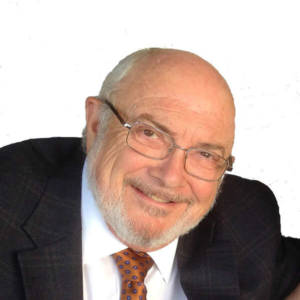Friday Filosophy v.02.25.2022
Augustine of Hippo (13 November 354 – 28 August 430), also known as Saint Augustine, was a theologian and philosopher of Berber origin and the bishop of Hippo Regius in Numidia, Roman North Africa. His writings influenced the development of Western philosophy and Western Christianity, and he is viewed as one of the most important Church Fathers of the Latin Church in the Patristic Period. His many important works include The City of God, On Christian Doctrine, and Confessions.
After his conversion to Christianity and baptism in 386, Augustine developed his own approach to philosophy and theology, accommodating a variety of methods and perspectives. Believing the grace of Christ was indispensable to human freedom, he helped formulate the doctrine of original sin and made significant contributions to the development of just war theory. When the Western Roman Empire began to disintegrate, Augustine imagined the Church as a spiritual City of God, distinct from the material Earthly City. His thoughts profoundly influenced the medieval worldview. The segment of the Church that adhered to the concept of the Trinity as defined by the Council of Nicaea and the Council of Constantinople closely identified with Augustine’s On the Trinity.
Augustine is recognized as a saint in the Catholic Church, the Eastern Orthodox Church, and the Anglican Communion. He is also a preeminent Catholic Doctor of the Church and the patron of the Augustinians. In the East his teachings are more disputed, and were notably attacked by some, but other theologians and figures of the Eastern Orthodox Church have shown significant approbation of his writings. The most controversial doctrine associated with him, the filioque, was rejected by the Orthodox Church. Other disputed teachings include his views on original sin, the doctrine of grace, and predestination. Nevertheless, though considered to be mistaken on some points, he is still considered a saint and has influenced some Eastern Church Fathers. Augustine’s impact on Western Christian thought can hardly be overstated; only his beloved example, Paul of Tarsus, has been more influential, and Westerners have generally seen Paul through Augustine’s eyes.
- Faith is to believe what you do not see; the reward of this faith is to see what you believe.
- Resentment is like drinking poison and waiting for the other person to die.
- What does love look like? It has the hands to help others. It has the feet to hasten to the poor and needy. It has eyes to see misery and want. It has the ears to hear the sighs and sorrows of men. That is what love looks like.
- Since love grows within you, so beauty grows. For love is the beauty of the soul.
- The world is a book, and those who do not travel read only a page.
- In doing what we ought we deserve no praise, because it is our duty.
- Humility is the foundation of all the other virtues hence, in the soul in which this virtue does not exist there cannot be any other virtue except in mere appearance.
- Patience is the companion of wisdom.
- In the absence of justice, what is sovereignty but organized robbery?
- Miracles are not contrary to nature, but only contrary to what we know about nature.
- Habit, if not resisted, soon becomes necessity.
- Hear the other side.
- If two friends ask you to judge a dispute, don’t accept, because you will lose one friend; on the other hand, if two strangers come with the same request, accept because you will gain one friend.
- The words printed here are concepts. You must go through the experiences.
The Time is Now


